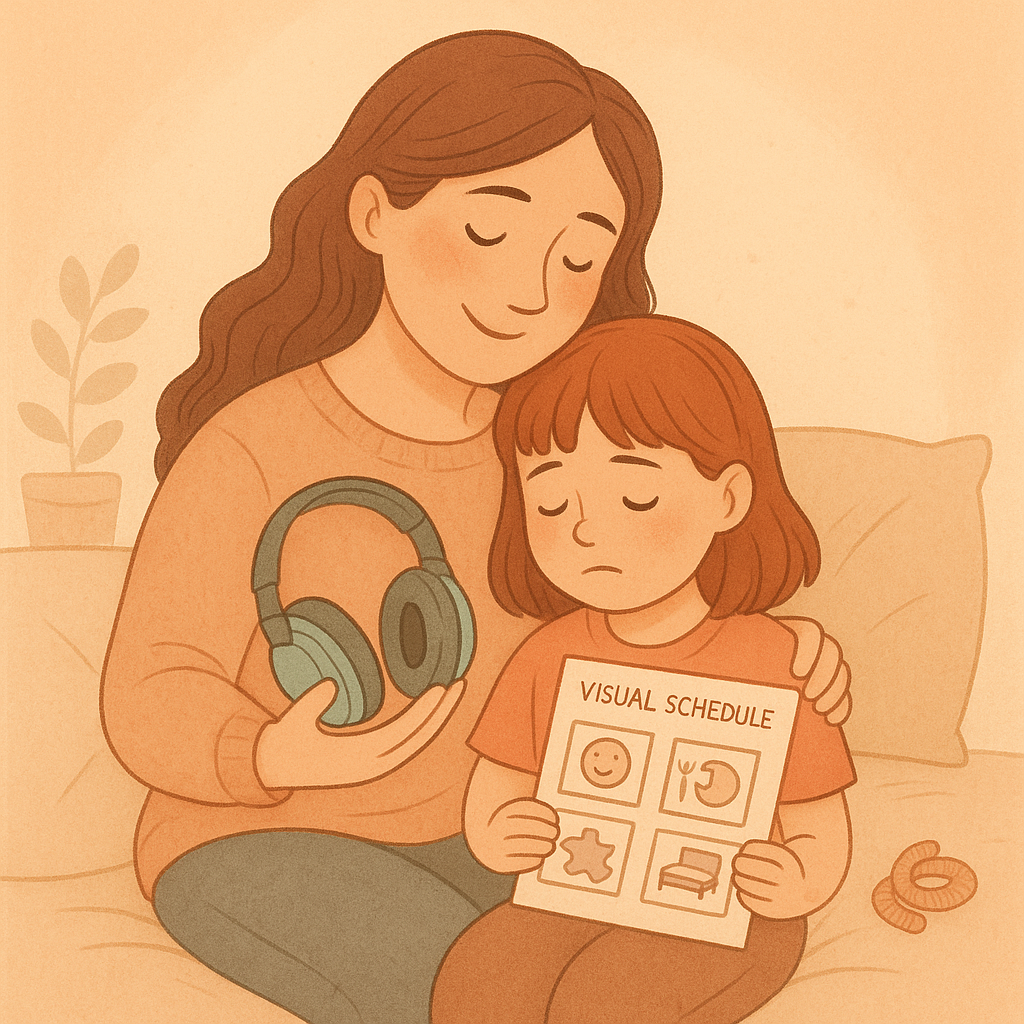When Everyday Moments Feel Too Big: Supporting Your Autistic Child Through Sensory Overload
1. Why "Simple" Moments Aren't Always Simple
Some children feel safe and regulated one minute - and completely overwhelmed the next. These moments are often triggered by:
Bright lights
Sudden changes in routine
Uncomfortable textures
Loud, unexpected sounds
Pressure to "just get on with it"
These are not tantrums. They're not bad behaviour. They are real, involuntary reactions to sensory overload.
2. Understanding the World Through Their Senses
Imagine being in a room where the lights are too bright, the fabric of your clothes itches your skin, and someone is asking you questions too quickly.
That's often how it feels inside for an autistic child during daily tasks like:
Brushing their teeth
Getting dressed
Going to school
Their brain isn't refusing. It's protecting them.
3. How to Gently Support Your Child
Start by asking: "What could be overwhelming right now?"
Try:
Dimmed lighting or lamps instead of ceiling lights
Predictable visual routines to reduce surprises
Soft, sensory-friendly tools (like our U-shaped toothbrushes or weighted lap pads)
Offering choices instead of commands: "Would you like to brush with the blue brush or the yellow one?"
4. What to Do When a Meltdown Happens
If your child becomes overwhelmed:
Pause the task. Don't push through it.
Offer calm, quiet presence (no talking if it's too much).
Provide their go-to sensory comfort (fidget, headphones, chew, blanket).
Afterward, reconnect gently. No lectures, just love.
5. You're Not Alone
It's okay if brushing teeth doesn't happen one morning. Or if breakfast takes an hour. These aren't parenting failures - they're signs your child is doing the best they can with the body and brain they have.
We're here to walk beside you with tools, strategies, and empathy.
If you're looking for tools to support your child during sensory-sensitive routines, explore our sensory care range by clicking HERE, created by parents, for parents. Every item we stock is chosen with neurodivergent needs in mind - because we live it too.
FAQ
Q: What is sensory overload?
A: Sensory overload happens when a child's brain receives too much input - like sound, touch, light, or movement - and can't filter it. This can cause meltdowns, shutdowns, or intense distress.
Q: How can I tell if my child is overwhelmed?
A: Watch for signs like covering ears, refusing clothing, hiding, or sudden distress in bright, noisy or busy spaces.
Q: How do I support them in that moment?
A: Stay calm, reduce the input (lights, sound, talking), and offer comfort through known sensory tools or familiar routines. Don't try to talk them out of it - just help them feel safe.




Leave a comment
This site is protected by hCaptcha and the hCaptcha Privacy Policy and Terms of Service apply.